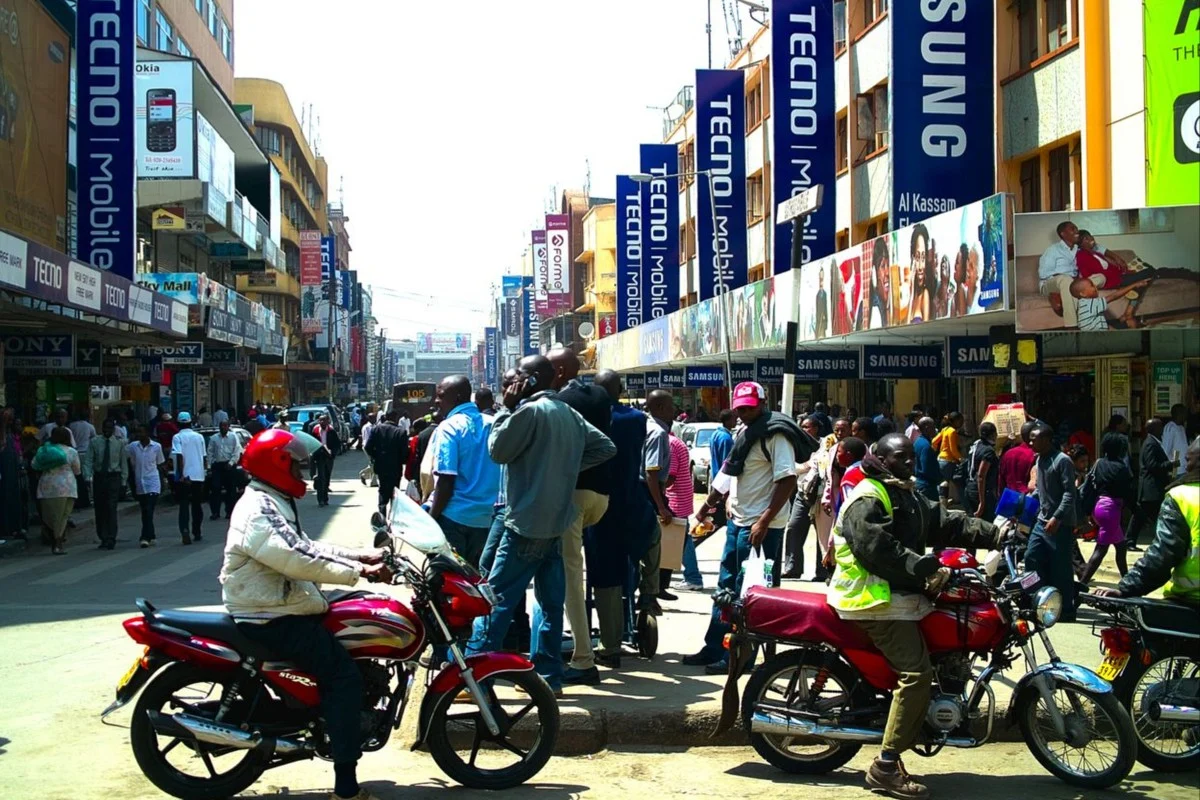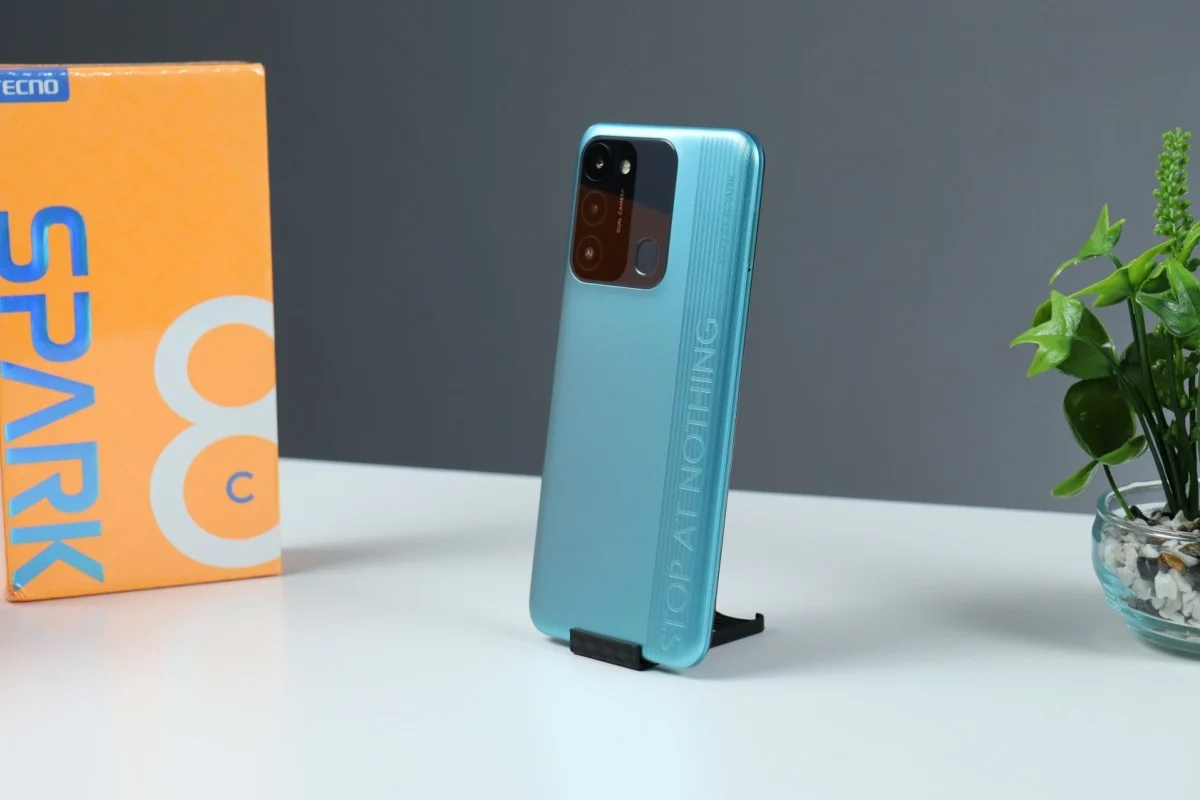The Unheard-of Chinese Phone
Along the bustling Luthuli Avenue in downtown Nairobi, banners and advertisements for mobile phones abound as shoppers pass by.
The storefronts in blue, red, black, and white in Kenya’s busy shopping district signify the colors associated with some of the best-selling phone brands in Africa – Tecno, Infinix, and iTel.
All three are phones manufactured in China. But most people in mainland China have never heard of them. Simply because they have never been sold domestically.
All three phone brands are produced by Transsion, a Shenzhen-based company specializing in phone sales in Africa – before expanding to other markets such as Latin America, India, Eastern Europe, and Southeast Asia.
In fact, Transsion’s sales strategy has been so successful that by 2023, the Tecno brand had sold more smartphones in the Middle East and Africa than Samsung or Apple.
It’s been a feat that bolsters China’s tech diplomacy in the region, attracting more and more Chinese tech companies to Africa and the Middle East.

According to data from Hong Kong-based Counterpoint Research, the sales volume of Tecno smartphones in the last quarter increased by 77% compared to the same period of the previous year, surpassing Samsung for the first time to be the leader in the Middle East and Africa region.
During the same period, Tecno’s smartphone shipment market share rose to 20% from 15% in 2022, while Samsung’s market share decreased from 24% in 2022 to 18%.
According to Counterpoint, Tecno’s growth was driven by the popularity of its handsets priced at around $150, such as the Tecno Pop 7 and Camon 20 Pro.
Understanding the Market
According to Yang Wang, a senior analyst at Counterpoint Research, economic factors have contributed to Transsion’s success in 2023. He said much of the growth was due to the macroeconomic environment, where there was low inflation, lower energy prices, and stability of the African currencies in most countries, all of which led to consumer confidence.
“The Transsion brands benefited greatly from tailwinds as they invested the most in the affordable to mid-range smartphone segment in Africa compared to the other major brands,” said Wang.
The affordability segment is key to the company’s success. Looking at the sales figures in Africa, Tecno surpassed Samsung in 2020.
Wang also noted that Tecno has continuously invested in advertising and has had a strong presence on multiple channels as well as ambitious plans such as launching high-end foldable smartphones – all of which have contributed to raising the brand’s reputation among consumers.
This strategy has paid off. Transsion is now the dominant mobile phone manufacturer in the entire Middle East and Africa region, accounting for over 36% of the shipment market share in Q4 2023 and 32% for the whole year.

Together, Tecno, Infinix, and iTel accounted for 48% of the smartphone market in Africa in 2023. Tecno alone held a 26% share of the smartphone market in Africa while Infinix and iTel held 12% and 10% respectively.
For over a decade, Transsion’s success has been attributed to its superior marketing efforts and understanding of consumer needs, such as producing dual SIM phones and phones with better-tuned cameras for darker African skin tones.
Replacing Huawei
According to technology research company International Data Corporation (IDC), Transsion shipped 95 million smartphones last year – an increase of over 30.8% from 2022.
According to the IDC, Africa played a major role in helping Transsion break into the top 5 world’s leading vendors for the first time. Samsung of South Korea ranks second in Africa with a market share of 16%, although its sales volume has not changed in 2023.
In addition to Transsion, other Chinese mobile phone brands include Xiaomi and Oppo. However, not all Chinese phone companies have seen such success in Africa in terms of sales volume.
Huawei Technologies has seen its market share in Africa drop from 10% in 2019 to about 1% in recent years.
“Huawei is actually one of the biggest companies in the region, but sales volumes plummeted after 2020 as a result of U.S. sanctions preventing the company from accessing Google services and chipsets,” said Wang.
“Huawei has since made a recovery in 2023, but it currently holds less than 1% of the market.”>
According to Kenyan technology consultant Peter Wanyonyi, access to apps like WhatsApp, Facebook, or TikTok is vital on a smartphone.
“That’s where companies like Tecno have figured out the winning formula: They provide smartphone capabilities at a very affordable price,” Wanyonyi said.
This once was Huawei’s market, but since being cut off from Google’s Android ecosystem, the Chinese tech giant has struggled in producing smartphones that can access the Android ecosystem – a platform widely used by the middle class in Africa.
“The lack of affordable Huawei devices has created a gap in the African smartphone market. This is something that Tecno and other similar phone manufacturers have exploited to rapidly gain market share from Huawei,” Wanyonyi said.




![[Photo Essay]: Experts, Managers, and Businesses Unite to Forge a Path Towards Sustainable Green Industry](https://xe.today/wp-content/uploads/2025/07/z678592918-150x150.jpg)


![[Photo Essay]: Experts, Managers, and Businesses Unite to Forge a Path Towards Sustainable Green Industry](https://xe.today/wp-content/uploads/2025/07/z678592918-100x70.jpg)




